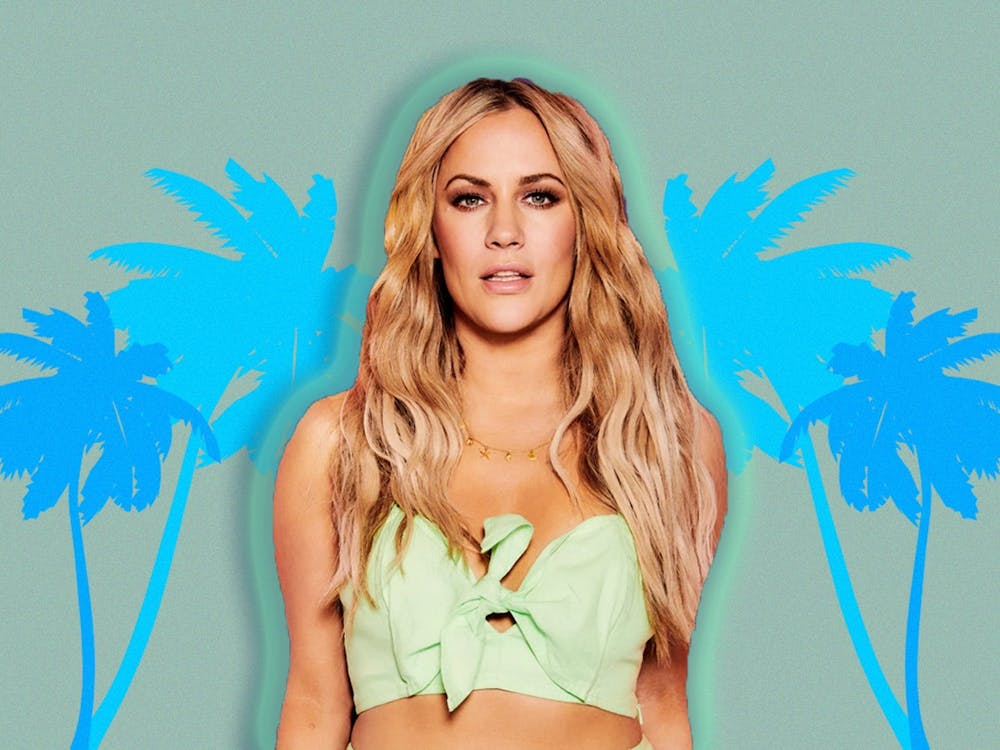Imagine this: You’ve gone through a selective application process for a competitive program, where, upon being accepted, you join a throng of young, restless and — most importantly — single individuals on confined premises, becoming socially and financially obliged to outlast each other in, for all intents and purposes, what can only be called a game.
Maybe that’s why I found “Love Island” so addictive. As a twisted metaphor for the college experience, it’s cathartic to watch people flounce around, sob to multiple cameras and scream at each other in 45 minute dosages. In another sense, “Love Island” is pure schadenfreude — pleasure derived from seeing suntan-oil-drenched bodies subsisting on physical attraction and gossip embarrass each other for weeks on end.
In all its glamorous artificiality and melodrama, “Love Island” occupied a strangely comforting place in my life, wherein its faults were fodder for my ironic consumption. Surely I’m not this vain, desperate or just plain stupid, I thought, as I clicked “next episode.” I thought “Love Island” was terrible, and that’s why it was wonderful.
Over a single summer, contestants converge on a villa in Mallorca, a Spanish island, and “couple up” with the person of their choice. “Islanders” enter and exit the villa regularly, creating ready-made drama as couples are split up and formed in the blink of a false lash-adorned eye. Popularity among both villa dwellers and the public is key: The least desirable contestants get voted off, gradually whittling the cast down to a single couple. Oh, and there’s the £50,000 prize for the winner.
If you’re not a watcher, it can be difficult to see why the show is so appealing. Fifty episodes per season is a daunting figure, and recalling a sprawling and ever-changing cast roster requires serious dedication. But once you get past the first five episodes, you’ll find that the next 45 somehow fly by.
Recently, however, “Love Island” has been a tough pill to swallow. Despite sky-high ratings, “Love Island” and its associates are becoming exceedingly controversial. The show has been accused of promoting unattainable body standards, sidelining women of color and throwing contestants’ mental health to the wind, while contestants themselves have been branded everything from vacuous fame-seekers to trophy-hunting murderers.
Season six, a special, truncated winter edition set in South Africa, has been mired in the death of former host Caroline Flack, a British television presenter who often attracted intense tabloid scrutiny. Flack stepped down from her five-season tenure after being charged with domestic assault last December. News of her suicide broke Feb. 15, in the middle of the sixth season, leaving producers scrambling to acknowledge her “Love Island” legacy by cancelling two episodes. The show promptly returned to its regular schedule, and the finale featured a tribute to Flack before the celebratory ceremony.
Flack’s death is just the latest — and perhaps most resonant — controversy to embroil the show, compounded by the deaths by suicide of former contestants Sofie Gradon and Mike Thalassitis. Flack’s death is an undeniable part of a larger discussion on mental health and the public eye, and many hope it will be a watershed moment in entertainment culture. The British government has already taken measures after the suicide of a participant on “The Jeremy Kyle Show” in May last year, and more than 270,000 people have signed a Change.org petition to launch a government inquiry into the British tabloid industry due to its harsh coverage of Flack’s assault charge.
In light of this, can “Love Island” continue dragging itself into glittery oblivion? While it delivers on entertainment, the concomitant problems always rear their heads. Yes, most of the islanders are unattainably pert and lacking in body hair. But worse is the fact that “Love Island” makes it tragically, painfully obvious when participants are outliers of heteronormative beauty ideals. In season six, Naz Majeed was continuously rejected and teased over his shorter stature. The season prior, Samira Mighty, a black woman, chose to leave after receiving hardly any advances, something the other women on the show — none of whom shared her skin tone — had to deal with. Other than inciting complicated discussions around gender politics and mental health, the show does nothing to address the issues it reveals.
To put it bluntly, “Love Island” is parasitic. Yes, islanders can be funny, even witty — not to mention sexually empowering. The show also brings in contestants from all over the United Kingdom and Ireland, giving exposure to often marginalized socioeconomic groups. But “Love Island” preys on society’s worst tendencies, serving contestants up to be torn apart over sexist, racist or simply immature assessments by both fellow islanders and the public. Shockingly, aspiring islanders seem all too willing to join in (nearly 100,000 applicants per year!).
“Love Island” perpetuates the fragility of the public persona, and has failed thrice to mend it. I’ve only gotten to Episode 19 (out of 36) of season six, and I can’t seem to bring myself to finish it. When our entertainment exploits the psychological torment of participants and packages it as a lovelorn extravaganza, it might be best to just swim away.
Get The Chronicle straight to your inbox
Signup for our weekly newsletter. Cancel at any time.

